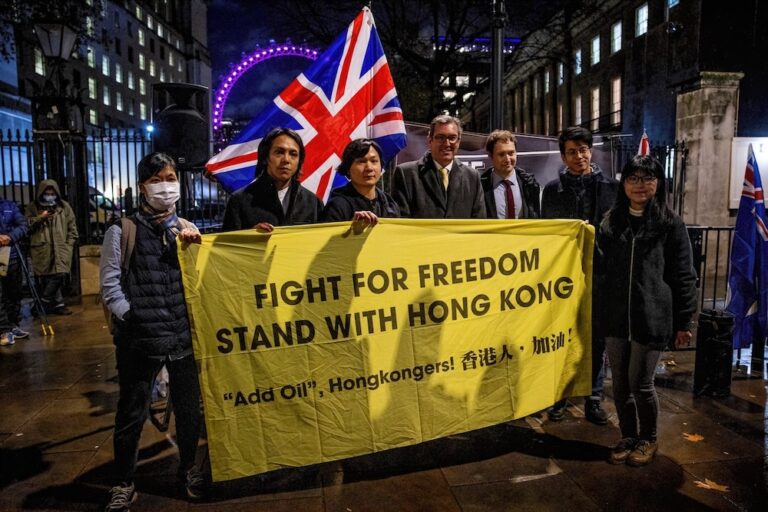The use of insulting words or behaviour will no longer be a criminal offence in the UK under the Public Order Act of 1986. ARTICLE 19 urges the government to address other laws that violate freedom of expression, such as Section 127(1) of the Communications Act 2003, which makes it illegal to use grossly offensive language online.
(ARTICLE 19/IFEX) – 15 January 2013 – ARTICLE 19 welcomes confirmation from the government that the use of insulting words or behaviour will no longer be a criminal offence under the Public Order Act 1986. The government has said it will not oppose a change proposed by the House of Lords and has accepted that Section 5 of the Act encroaches on freedom of expression.
ARTICLE 19 now urges the government to show greater leadership to protect the right to freedom of expression and make changes to other legislation that illegitimately restricts this fundamental right.
“A change to the Public Order Act of 1986 is long overdue. The fact that currently insulting someone could land you in jail is a flagrant violation of the basic right to free speech. It is a shame that the Home Secretary had to wait for the House of Lords to make the case for this amendment and that she only offered her support both reluctantly and with qualification” said Agnes Callamard, Executive Director of ARTICLE 19.
The word “insulting” in Section 5 is problematic because it allows free speech to be restricted to protect people from offense or robust criticism.
While the right to freedom of expression can be limited in narrow circumstances, including to protect against defamation or to protect national security or public order, any use of criminal penalties must be strictly necessary and proportionate.
The word ‘insult’ is vague and overbroad. When it is illegal to ‘insult’, the authorities are able to determine for themselves what this means. It provides an arbitrary power which could be abused to stifle vigorous debate, particularly on politically contentious issues where passions run high.
The amendment has been incorporated into the Crime and Courts Bill 2012, which is currently at the committee stage and will go through a final reading in the House of Commons before receiving Royal Assent and becoming law.
“In 2010 the coalition pledged to restore fundamental freedoms which it said had been abused and eroded. We urge the government to lead rather than follow now, and to take decisive action to address other laws that violate freedom of expression. That includes but is in no means limited to Section 5’s cyber-sibling, Section 127(1) of the Communications Act 2003, which makes it illegal to use grossly offensive language online” she added.
Section 127(1) of the Communications Act 2003 was the basis for prosecuting and convicting Paul Chambers in the infamous “twitter joke trial” case, a conviction that was later overturned by the Court of Appeal in August 2012. Similar provisions in Section 1 of the Malicious Communications Act 1998 have been used to arrest a person who posted a picture of himself burning an imitation poppy online.
ARTICLE 19 notes that freedom of expression is a basic condition for a democratic society and requires people to tolerate speech that may shock, offend or disturb. The right can only be restricted in very limited circumstances, and not to protect people’s feelings or sensitivities.


